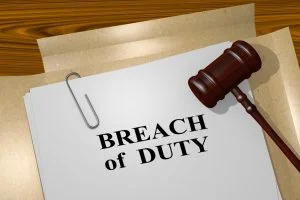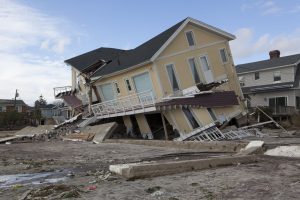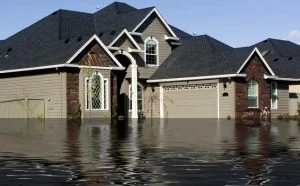
Real estate agents and brokers, unfortunately, are often the victims of lawsuits. Even the most diligent real estate professionals cannot completely insulate themselves from this threat. There are some tactics to minimize liability and risk that you can employ. However one of the best ways to ensure your personal financial future is safe is to take action and create a personal asset protection plan now.
Top 10 Lawsuits Against Real Estate Professionals
Here are 10 of the most common reasons why people file lawsuits against real estate agents and brokers.
- Fraud
- Breach of Duty
- Breach of Contract
- Negligence
- Property Damage / Bodily Injury
- Misrepresentation of the Property’s Condition
- Consumer Protection Act
- Escrow Money Dispute
- Misrepresentation about Flooding / Leaking
- Misrepresentation of Property Value
It is under one of those claims that name real estate professionals in lawsuits or demand letters. Therefore, through proactive asset protection planning, education and familiarization with these claims, professionals can avoid being stripped of assets. Now, let’s detail the 10 most common claims and causes of actions since 2001.
1. Fraud
This is the most common claim against real estate professionals with a single differentiating factor, intent. That is, in order for a judge or jury to rule in favor of a fraud claim, your opponent must prove a deliberate intent to harm.
Example Fraud Claims:
- Purposely withholding information from buyers with knowledge of of problems that could jeopardize a real estate development project
- An agent had knowledge that the property’s well under-produces the water flow rate listed on the MLS
- An agent knew about a square footage discrepancy of a home and did not disclose it to the buyers
Intent, in this case, could be as simple as an affirmative statement, or purposeful withholding of actual facts of which an agent has knowledge. Damage claims are situation specific and will vary with each legal battle. However some of the common damage claims include, diminished property value, repair / replacement costs, profit opportunity losses, emotional or physical distress, closing costs and plaintiff’s attorney fees. Damages may also include punitive damages on top of plaintiff’s damages.
Acts of Fraud are not insurable. This means even if you’re insured, your policy will generally not cover a fraud judgment. Only a proper asset protection plan can.
Fraud can be very threatening due to the fact that it can hold the defendant liable for any amount awarded in a judgment plus legal fees.
2. Breach of Duty
Real Estate professionals are often bound by fiduciary responsibility. That is, there is a relationship of trust and confidence. The agent must act in the client’s best interest. In fact, in a fiduciary relationship, the law prohibits anything other than action in the best interest of the client. It also forbids acting for your own benefit in a way that might be detrimental to the client. Accordingly, people acting as fiduciaries are held to a high standard of honesty and disclosure. Alleged breaches of duty can stem from intentional or negligent acts.
Examples of Breach of Duty Claims:
- An agent purposefully did not disclose a water rights dispute between the seller and a neighbor
- The agent failed to disclose the flooding propensity of the road on the property
- Agents did not verify the land section showed to a buyer and the buyer purchased a different lot
3. Breach of Contract
This is a regular occurrence where one party asserts a breach of contract claim against his real estate professional. In other words, it simply means that one party failed to perform on his or her terms of the contract. When courts find that there was a breach of contract, damages are awarded. This typically arises from the buying or listing agreement, as well as verbal contracts with less experienced professionals. This claim is also typically asserted in conjunction with breach of duty, fraud, etc.
4. Negligence
Negligence claims fall back to the duty of the professional to her client. This happens when a plaintiff alleges failure to perform or act with due care. In order for the claim to succeed, the plaintiff must prove that there was professional duty to the plaintiff. So, they show that your actions or intent breached the duty, or your actions or intentions caused harm to the plaintiff. Plus, there must be an injury discernible from your actions or inaction. Negligence is different than fraud due to the fact that negligence lacks the intent component. A classic example of this is that a concealed property defect was not intentional. However, there was professional responsibility to know about and disclose a defect in a property. Negligence comes as an alternative with fraud. So, if the fraud claim is not successful, the plaintiff can still pursue negligence.
Examples of Negligence Claims:
- An agent failed to deliver written notice of one party opting out of a sale agreement before a deadline
- The agent should have known that the septic system was undersized for the home
- The agent failed to find and disclose of termite damage
In negligence claims, judgments do not include punitive damages. However they are limited to actual suffered damages, which may include litigation costs.
5. Property Damage / Bodily Injury
In most cases these claims arise from latent defects like water leaking and flooding a basement. Likewise, it might be a leaky roof that the buyer discovered in the winter. It could be termite damage. On the whole, property damage claims seek damages based on the property destruction or diminished property value. Liability exposure can stem from bodily injury claims when showing a property. Health related problems arising from a mold issue is another. Often, this includes pain and suffering damages, mental anguish and/or emotional distress. As a small business owner / real estate broker, unless you have an asset protection strategy, a lawsuit such as this one could wipe you out.
6. Misrepresentation of Property Condition
Anytime there are property issues concerning the condition of the subject property, you are at risk. This happens frequently. When it does, the client could assert a claim of misrepresentation. Oftentimes, a single issue contains allegations of incidental issues. Other times, it’s just a list of problems with the subject property. Misrepresentation of property condition include, for example, the condition of drywall or stucco, mold presence, type of floor used, roof condition, defects in the foundation, water intrusion and the age of the home.
7. Consumer Protection Act
Most states have enacted consumer protection laws that address unfair practices, deceptive acts, and methods of competition. In some court cases consumer protection laws have applied to real estate transactions. If a consumer protection act claim is successful a plaintiff can pursue treble damages. This means triple the damages. Damages such as these vary from jurisdiction to jurisdiction. Treble damages are similar to punitive ones. One very notable item is that this means your insurance policy will not cover it. Treble damages will hold the agent personally liable.
8. Escrow Money Dispute
Claims regarding escrow money disputes often arise from the agent failing to take action to initiate the payment or refund of escrow money, security deposits, taxes or commissions. Fortunately, this type of dispute is often covered by E&O insurance. However, some carriers require an optional endorsement to provide additional coverage in this area.
9. Misrepresentation of Flooding / Leaking
These claims may stem from alleged failure to disclose or misrepresentation of a flood risk or leaks in the property. Most of the time these claims include incidental damage claims such as damage to personal effects, structural damage, property value differences and costs of repair.
Examples of Misrepresentation of Flooding / Leaking:
- The seller disclosed there is a flooding/leaking problem and an agent failed to disclose that
- The agent did not disclose the water discoloration on basement walls
- The agent claimed water damage was driven by high winds during a hurricane rather than light rain
10. Misrepresentation of Property Value
This can happen due to a number of scenarios, primarily when an appraiser allegedly overvalued the property or broker price opinions which are other tools to provide fair market values of properties. This claim happens in the inverse where a client alleges that an agent undervalued a property and listed/sold it for less that it was worth.
Real Estate Agent Asset Protection Conclusion
So, what is the solution? You don’t control the other guy. Anyone can sue you for anything at any time, justified or not. A client who is short on cash can invent a reason to sue you. There are hundreds of thousands of contingent fee lawyers in this country who are looking for their next meals. If you do not want that to be you, give us a call at the number on this page. We can work with you to put together an asset protection strategy that is right for you.














